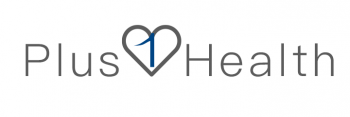Obstructive sleep apnea syndrome is a condition in which the upper airway collapses and becomes obstructed repeatedly during sleep. After the occurrence of this disease, patients will have symptoms such as sleep snoring, apnea, and daytime sleepiness, which will greatly affect their normal life. Therefore, it is recommended that people who are prone to this disease actively take relevant preventive measures. So, who is prone to obstructive sleep apnea syndrome?
1. Obese people
Obese people are more prone to obstructive sleep apnea syndrome, and obesity itself is an independent risk factor. Moreover, according to clinical findings, more than 60% of patients with obstructive sleep apnea syndrome have obesity problems, because the negative pressure in the upper airway of obese patients will increase, and the fat in the neck will directly compress the throat , which will lead to a decrease in the residual capacity of the lung function, thereby causing the disease to appear.
2. The elderly
The elderly are also a high-risk group of obstructive sleep apnea syndrome, and according to clinical knowledge, with the increase of age, the risk of the disease will gradually increase. Because the function of various organs will decline in the process of aging, and the muscle tone of the throat will also decrease, which will increase the probability of obstructive sleep apnea syndrome.
3. People with upper airway obstruction disease
People with upper airway obstruction diseases are also very prone to obstructive sleep apnea syndrome, such as chronic rhinitis, turbinate hypertrophy, tonsil hypertrophy, etc. Breathing is affected to varying degrees. At this time, if the relevant control is not actively carried out, it is very easy to induce symptoms.
4. Male
Apnea is also related to gender. Men are much more likely to suffer from the disease than women, but women are more likely to suffer from apnea after menopause, which is basically the same as that of men.
5. People with short chins
Some people have a short chin, and the chin will be retracted. The tongue will also retract, resulting in a narrow space behind the tongue. Such people are prone to block the trachea during sleep and cause apnea.
6. For patients who smoke, smoke repeatedly stimulates the upper respiratory tract, and eventually it is easy to develop obstructive sleep apnea syndrome.
7. Drinking, if you drink for a long time, especially if you drink a lot, get drunk, your muscles are very relaxed at night, and you are prone to serious sleep apnea.
- Those with a family history of sleep apnea syndrome.
The above-mentioned people are prone to obstructive sleep apnea syndrome. It is recommended that people who are prone to symptoms should pay attention to the protection of their own bodies in their daily life, and actively carry out correct prevention. At the same time, you should also maintain adequate sleep, choose a suitable pillow height, and ventilate the indoor environment frequently to keep the air unobstructed.
Plus1Health has a sleep recorder, which is used for non-contact detection of human heart rate, respiration rate, and sleep status. , real-time warning. Sleep record also include screening for sleep apnea, preventing disease risks, and providing data basis and analysis for targeted improvement of sleep quality.
